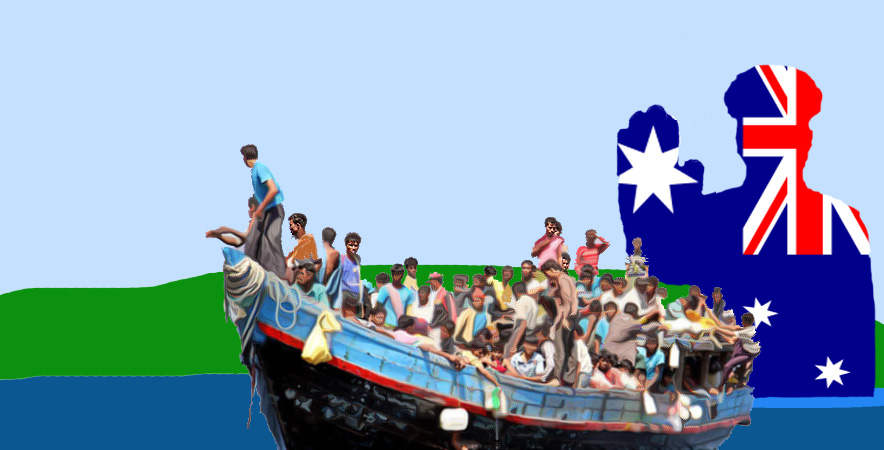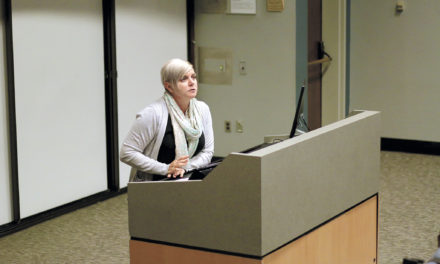In 2014, Myanmar tied with the United States for the title of most generous country in the world. This is a curious honor to grant a country that has systematically persecuted its minority Muslim Rohingya population for decades, denying them access to adequate food supplies, health care and education.
Since 2012, however, the situation for the approximately 1.3 million Rohingya has steadily deteriorated due to ethnic clashes between the minority Muslims and the majority Buddhists. State-sponsored violence has become more common and accepted, even despite the country’s transition to democracy in 2011. Indeed, democracy is failing human rights as political parties gain public support through their advocacy of the ethnic cleansing of the Rohingya. Frequent acts of cruelty directed at the Rohingya, including murder, forced labor and mass scale arrests, have caused more than 100,000 of the minority group to flee the country and left another 140,000 internally displaced.
The actions committed by Myanmar’s government are criminal and, by the standards imposed by the International Criminal Court, must be classified as crimes against humanity. Even more, due to their flagrant infringement of four of the five criteria used by the United Nations (UN) General Assembly to define genocide, these human rights abuses amount to genocide. To be clear, only one of these criteria needs to be violated for a government’s actions to be classified as genocide, yet these brazen acts of inhumanity can be classified as genocide on multiple counts.
For 30 years, Myanmar has established a racist apartheid within its own country, producing a system wherein the Rohingya have an infant mortality rate that is three times the national average, a doctor-patient ratio that is 1:200 of the national average and a 90 percent rate of illiteracy in a country with a 95.4 percent literacy rate — one of the highest in all of Asia. Even more, Rohingyas are unable to improve their circumstances by accepting international aid from groups such as Doctors Without Borders due to the harsh ban enacted by the government. Making matters worse, they cannot fight for change democratically, since they have been denied citizenship and voting rights.
The most generous country of 2014 is also among the most criminal and cruel toward one of its own minority groups, and there has not been enough international outrage or activism to combat this tyranny.
Indeed, the United States has expended an alarmingly little amount of energy attempting to rectify the crisis in Myanmar, especially considering the Obama administration’s hailing of Myanmar’s transition to a democracy. While the United States has in part lived up to its title of most generous nation by agreeing to take in refugees through an international cooperative effort, no huge push has been made to organize such an effort toward rescuing the stranded Rohingya.
Even worse, instead of outspokenly demanding justice and human rights provisions, many countries have themselves become criminal, or simply criminally negligent. India and China, the two economic powerhouses that border Myanmar, have simply allowed the human rights abuses to continue through their passive refusal to castigate the nation’s government or pressure the country with economic sanctions.
India is slightly less culpable than China, since it has grudgingly accepted approximately 10,000 Rohingya refugees and has less political and economic influence in Myanmar than China.
Other neighboring countries have followed this example and are doing little to help, if anything at all. Indonesia and Malaysia have created temporary government shelters, in which the Rohingya migrants can reside and receive humanitarian aid, provided that they return home or resettle in another country after only one year. However, even in these countries the Rohingya, lacking legal status, are condemned to widespread threats of exploitation and human trafficking.
The Rohingya are also prevented from leaving the government camps, which effectively bar them from any jobs or educational opportunities. The conditions in Bangladesh are even worse, where the government, in order to protect its tourist industry, is attempting to move 32,000 Rohingya refugees to the remote island of Thengar Char, which disappears completely under high water at high tide and has no roads or flood defenses.
However, the harshest and most brutal responses come from Thailand and Australia. Thailand has stated in no uncertain terms that it will refuse to grant asylum to the forlorn Rohingya who are attempting to sail to safety on what have been dubbed “floating coffins.” Even worse, those Rohingya who do arrive in Thailand via human traffickers are often tortured, raped and starved to death while they are extorted for ransom. A mass grave from such a camp was uncovered in May, and many more undoubtedly exist.
There is a bloody stain spreading across the region, and the crime that began with just the Myanmar government has been exacerbated by the callous international response to the brutalized Rohingya population.
Indeed, Australia — a signatory of the UN Refugee Convention, the fourth most generous country and the 12th largest economy in the world — is perhaps the most culpable of these countries. The Australian government is determined to prevent any entry by Rohingya refugees and is not only turning back boat-fulls of desperate, dying Rohingya, but has also bribed human traffickers to turn at least 20 boats full of migrants back to Indonesia in the last 18 months after intercepting them at sea. By doing so, the Australian government is effectively engaging in human trafficking, a crime that simply has no excuse in such a socially and economically progressive country.
Dozens of Rohingya are burned alive, hundreds are dumped in mass graves, thousands starve or sink helplessly into the sea, yet countries with the power to stop these crimes or simply provide refuge to those being persecuted instead opt to close their borders and harden their rhetoric. How has it become acceptable to tolerate such inhumanity?
There can be no more silence, no more negligence or heartless indifference. We are witnessing the next genocide. We must act.
Safiyah Bharwani is a College sophomore from Sugar Land, Texas.







Very good my contact number +6281245921918
Let’s provide a little context why don’t we.
Some historians peg the number of Buddhists and Hindus killed by Muslims at as many as 70 million in the centuries long Muslim jihad of southern Asia. In fact today Muslim jihadists are invading southern Thailand along the Malaysian peninsula and this jihad has resulted in something like 6,000 dead Buddhists.
Southern Asia was once a region populated by Hindus and Buddhists. Today in what is known as Pakistan there are next to no Buddhists left living there and the Hindu population is close to being wiped out too by Muslims expanding their caliphate. In Bangladesh this is also happening and the indigenous people – the Hindus and Buddhists – will soon be gone. Meanwhile Afghanistan, once home to a flourishing Buddhist civilization, is now 100% Muslim and the Buddhist relics and statues are being destroyed by the Muslims too. And in India the Muslim population is soaring creating the typical problems associated with Muslims living in a country no their own.
Let’s also remember that the first genocide of the 20th century was committed by Muslims when they cruelly killed 1.5 million Armenians in what is now called eastern Turkey, and the last genocide of the 20th century was also committed by Muslims against the black Christians and Animists of Sudan. Meanwhile mayhem, ethnic cleansing and other acts of barbarism are going on throughout the Middle East and Africa as Muslim jihadists fight in the name of Allah.
The following ancient peoples are being ethnically cleansed by Muslims: The Copts, Chaldeans, Assyrians, Zoroastrians of the Middle East. And now Muslim jihadists have turned one of Africa’s jewels, Kenya, into a no-go zone and Nigeria has become a “killing field” as Muslim jihadists fight their way southward.
And, of course, the last Jews of the Middle East are daily threatened with genocide by their genocidal Muslim neighbors.
So there is the context and America can only stretch so far, and what is happening in Myanmar is trivial when compared to all the other places where Muslims are wreaking true genocide.
Estimates of the strength of the insurgency vary greatly. In 2004 General Panlop Pinmanee claimed that there were only 500 hard-core jihadists. Other estimates say there as many as 15,000 armed insurgents. Around 2004 some Thai analysts believed that foreign Islamic terrorist groups were infiltrating the area, and that foreign funds and arms are being brought in, though again, such claims were balanced by an equally large body of opinion suggesting this remains a distinctly local conflict.
Over 6,000 people died and more than 10,000 were injured between 2004 and 2014 in a formerly ethnic separatist insurgency, which has currently been taken over by hard-line jihadis and pitted them against both the Thai-speaking Buddhist minority and local Muslims who have a moderate approach or who support the Thai government.
Hindus
Koenard Elst in Negationism in India gives an estimate of 80 million Hindus killed in the total jihad against India. [Koenard Elst,Negationism in India, Voice of India, New Delhi, 2002, pg. 34.] The country of India today is only half the size of ancient India, due to jihad. The mountains near India are called the Hindu Kush, meaning the “funeral pyre of the Hindus.”
80 million Hindus
Buddhism was one of the major religions in Afghanistan during pre-Islamic era. The religion was widespread south of the Hindu Kush mountains. Buddhism first arrived in Afghanistan in 305 BCE when the Greek Seleucid Empire made an alliance with the Indian Maurya Empire. The resulting Greco-Buddhism flourished under theGreco-Bactrian Kingdom (250 BC-125 BC) and the later Indo-Greek Kingdom (180 BC – 10 CE) in modern northern Pakistan and Afghanistan. Greco-Buddhism reached its height under the Kushan Empire, which used the Greek alphabet to write its Bactrian language.
Numerous Buddhist monks were sent out, including Bodhidharma the founder of Zen Buddhism in China and legendary founder of Shaolin Kung Fu, Lokaksema (c. 178 CE), who travelled to the Chinese capital of Loyang and was the first translator of Mahayana Buddhist scriptures into Chinese,[1] and Mahadharmaraksita who, according to the Mahavamsa (Chap. XXIX[2]), led 30,000 Buddhist monks from “the Greek city of Alasandra” (Alexandria of the Caucasus, around 150 km north of today’s Kabul in Afghanistan), to Sri Lanka for the dedication of the Great Stupa in Anuradhapura. The Greco-Bactrian King Menander I, (Pali) “Milinda,” ruled (165 BC – 135 BC) was a renowned patron of Buddhism immortalized in the Buddhist text the Milinda Panha.
The religion started fading with the arrival of Islam in the 7th century but finally ended during the Ghaznavids in the 11th century.[3]
I’m curious…who is this Abdul fellow? Is he paying you to write this?